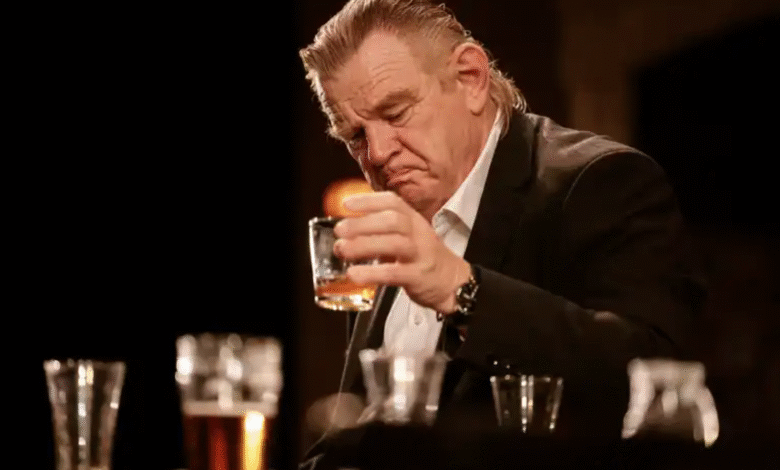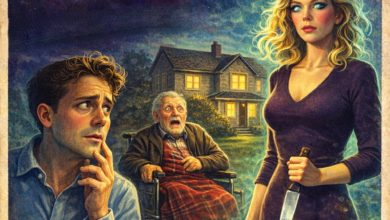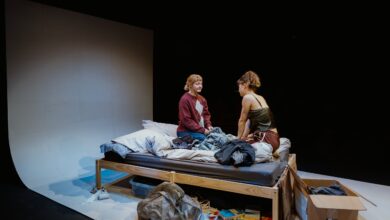Review: The Weir, Harold Pinter Theatre
Conor McPherson’s affecting 1990s debut is revived with a starry cast to win over London audiences all over again. Rating
Excellent!
The Weir is an exquisitely simple play, built on an equally simple premise: life is, above all else, a series of stories we tell ourselves and, occasionally, when encounters allow, each other. There may be plenty of bolder, louder, more provocative plays in the West End, but few can be as satisfying as Conor McPherson’s tale from rural Ireland. Like a fine single malt, the evening slips down easily. This isn’t a bad thing. Why make life harder than it needs to be? The Weir’s great strength lies in the fact that we’re welcomed, invited to pull up a bar stool, ask for a drink, and watch the gentle, low-key action unfold. It invites immediate intimacy – quite the feat considering we’re in London’s ludicrously busy, cramped, and expensive West End.
It helps that this revival, directed by McPherson himself 28 years after the play’s Royal Court debut, has attracted remarkable acting talent. Top of the bill, with his name above the title, is cinematic heavyweight Brendan Gleeson. As melancholy barfly Jack, he brings curmudgeonly wit by the bucketload, but never forces or overplays a moment. His work is the antithesis of star power: no artifice, no effort showing, just lived-in, entirely believable reality. While there are plenty of laughs, there are no real jokes. Everything is delivered with the easy rhythm of small-town banter, sharpened by McPherson’s comedic ear and skilful penmanship.
Much of the humour comes from small-town-boy-done-good Finbar (Tom Vaughan-Lawlor), who, never standing still, drives the plot forward and stops the staging from feeling static. After all, we are watching people sit and drink in a pub. By contrast, Jim (Seán McGinley) often stays still and silent, but when he does speak, he deadpans his way through some of McPherson’s sharpest lines. Also quiet, laconic barman Brendan (Owen McDonnell) spends much of his time watching the others talk, yet remains a grounded, kindly, hard-working presence throughout.
The fifth cast member, Kate Phillips, plays Valerie, a newcomer from Dublin, being shown around by the irrepressible Finbar. I won’t share too much of her story — there’s a revelation best left unspoiled — but Phillips shifts the play into another gear, not with fireworks or histrionics, but through simple, heartfelt, agonising truth. It’s all beautifully judged.
The publicity suggests that The Weir is about ghost stories, or at least tales of faerie folk and the otherworld. And yes, you can imagine another version of the play with its characters huddled around a campfire, swapping eerie yarns. But that would miss the real heart of McPherson’s drama. He’s not writing about our fears. He’s writing about the small kindnesses and fragile connections that help us keep them at bay.
This top-notch revival is a timely reminder that theatre need not shout to be powerful. There’s no need to be overly sophisticated or lurch to abstraction to be meaningful, either. With restraint, wit, and simple tenderness, McPherson and his cast draw us in for a moving, funny, and quietly profound experience, and I say cheers to that.
Writer & Director: Conor McPherson
Set & Costume Design: Rae Smith
Lighting Design: Mark Henderson
Sound Design: Gregory Clarke
Associate Director: Molly Stacey
Producers: Kate Horton & Anne Clarke
The Weir plays at The Harold Pinter Theatre until Saturday 6 December.






